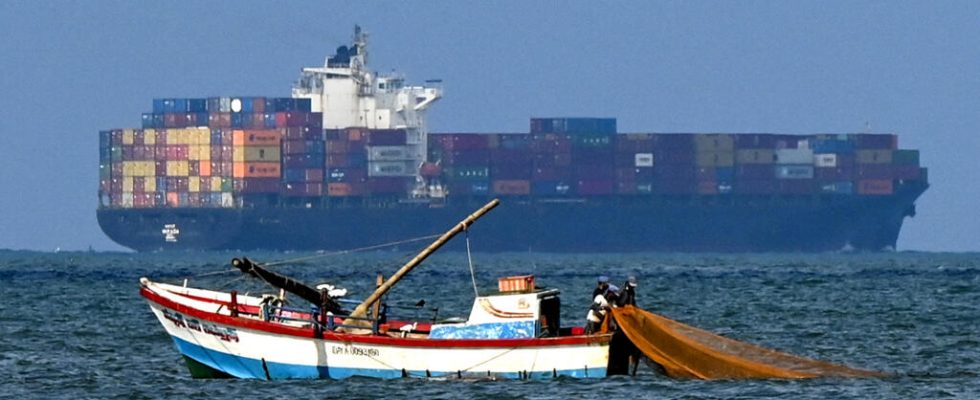In its latest report, the UNCTAD (United Nations Conference on Trade and Development) calls for the adoption of a global “blue pact” for the oceans. The goal? Sustainable use of the oceans for the benefit, above all, of developing countries. For this, the organization points in particular to two axes: the cultivation of algae and substitutes for plastic.
” The ocean economy offers great opportunities. We need to find the right balance between benefiting from the oceans and protecting its resources said the Under-Secretary-General of the UnctadPedro Manuel Moreno, during the presentation of the report.
The oceans harbor 80% of all life forms », recall the report, which insists on better preserving the maritime territories. And for this, the Cnuced proposes in particular to take more interest in algae, a product of the future.
According to experts, algae have a huge interest in the future. They do not need fresh water or fertilizer to grow. And their market has exploded: it has more than tripled in 20 years. From $4.5 billion in 2000, it has risen to $16.5 billion in 2020. The authors tout the benefits of algae because they could “ be grown in many developing countries for the production of food, cosmetics and biofuels “.
>> To read also: The superpowers of algae
But it is also to fight against plastic, a scourge for the ocean, that algae arouse so much interest in the eyes of UN experts. Every year, 11 million tons of plastics end up in salt water around the world. And the phenomenon is exacerbated. ” Annual global plastics production was around 400 million tons in 2020 (it) is expected to double by 2040 and increase 2.5 times by 2050 if current consumption rate continues “, warns the report.
The health of our ocean, home to 80% of life on Earth, has reached a tipping point.
At stake are the livelihoods of 3 billion people, living mostly in developing countries.@UNCTAD‘s Trade and Environment Review 2023 calls for a global Blue Deal. ➡️ https://t.co/Q3jw91WJIB pic.twitter.com/TXnwtsFAdP
—UNCTAD, the UN trade & development body (@UNCTAD) May 8, 2023
“Urgently closing the financing gap”
To protect biodiversity, the United Nations Conference on Trade and Development calls on countries to ratify the WTO agreement on fisheries subsidies because ” 34% of global fish stocks are below biologically sustainable levels “. The Cnuced is also alarmed by the use of the 35 billion dollars of public subsidies dedicated to fishing in the world. According to the authors, ” about $20 billion a year » could contribute to overfishing because they are dedicated to fuel or encourage the purchase of larger boats.
And finally, through this “blue pact”, the organization calls for “ urgently closing the ocean financing gap », totally undersized. Official development assistance dedicated to the ocean economy represented only 1.6% between 2013 and 2018, or less than 3 billion dollars. UNCTAD estimates that it would take at least $175 billion a year to achieve the sustainable development goal devoted to life below water, SDG14, by 2030. Without a global “blue deal” , the goals of SDG 14 “ will be much more difficult to reach “, pleads the document.
>> To read also: Environment: overfishing is pushing the oceans towards an ecological disaster
Going further, the economic fallout would be strong, also boasts Cnuced, which pleads for 2.8 trillion dollars in investments today. This would lead, according to the organization, net benefits of $15.5 trillion by 2050 “. ” Now is the time to change course by investing more in building a sustainable ocean economy said Mr. Moreno.
